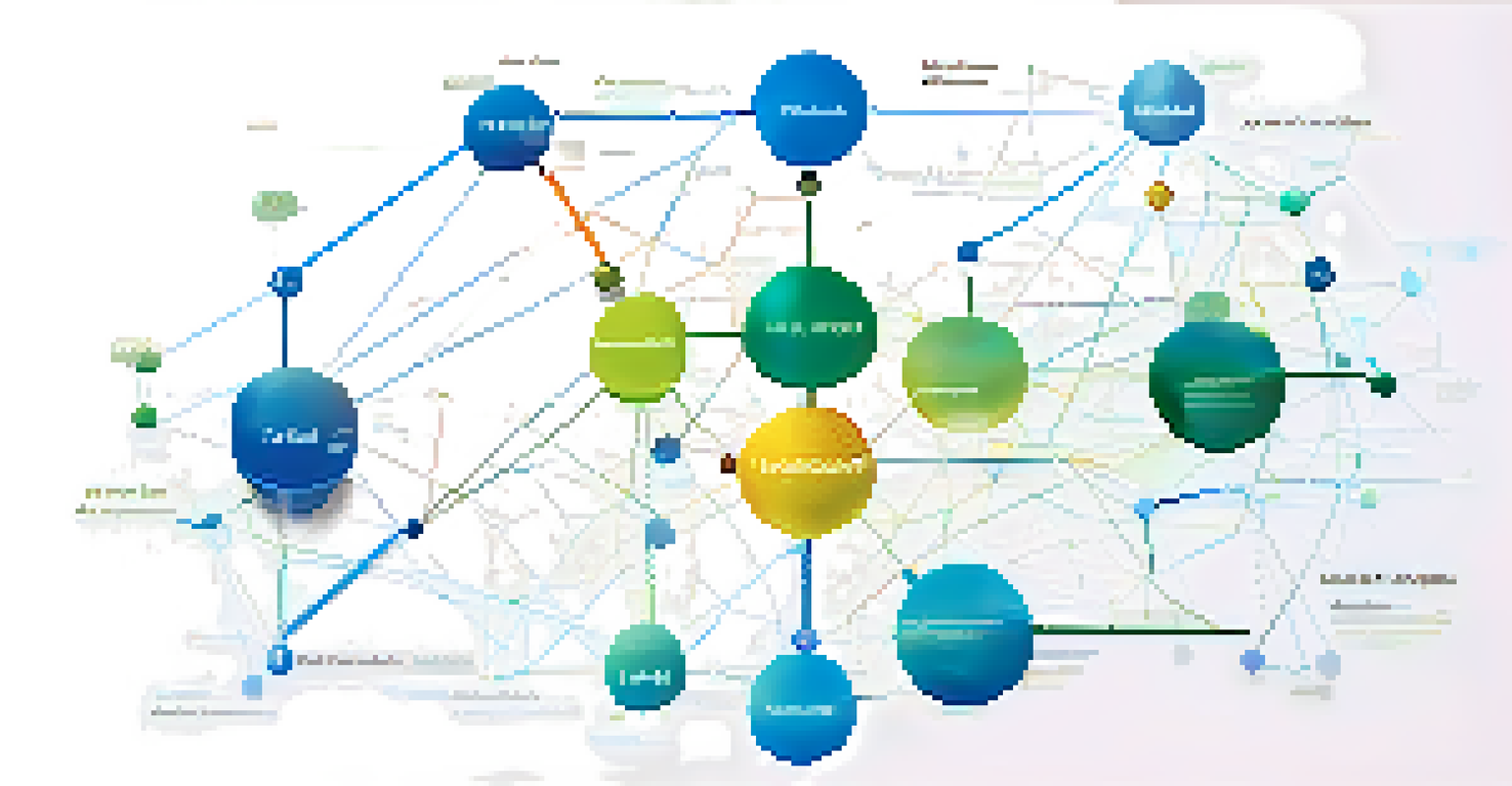The Role of Artificial Intelligence in Digital Assessments

Understanding Digital Assessments and Their Importance
Digital assessments have become a cornerstone of modern education, providing a flexible and efficient way to evaluate student learning. Unlike traditional methods, these assessments can be easily administered and scored, allowing educators to focus more on teaching and less on paperwork. They offer immediate feedback, enabling both teachers and students to identify strengths and weaknesses promptly.
Technology is best when it brings people together.
The importance of digital assessments extends beyond just grading; they play a crucial role in understanding student engagement and comprehension. By analyzing performance data, educators can tailor their teaching strategies to meet the unique needs of their students. This adaptability is vital in today's diverse learning environments, where one-size-fits-all approaches often fall short.
As educational institutions increasingly rely on digital assessments, the integration of technology becomes paramount. This is where Artificial Intelligence (AI) steps in, enhancing the accuracy and effectiveness of evaluation processes. By incorporating AI, educators can ensure that assessments are not only fair but also reflective of a student's true abilities.
How AI Enhances the Assessment Process
Artificial Intelligence streamlines the assessment process in various ways, primarily through automation. For instance, AI can grade multiple-choice and fill-in-the-blank questions in seconds, freeing up educators to focus on more complex tasks. This efficiency allows for a quicker turnaround of results, which is essential for timely feedback.

Moreover, AI can analyze vast amounts of data to identify patterns and trends in student performance. This capability helps educators understand which areas of the curriculum may need adjustment or further support. By leveraging this data, teachers can create targeted interventions that address specific learning gaps, ultimately leading to improved student outcomes.
AI Enhances Assessment Efficiency
Artificial Intelligence streamlines grading and provides immediate feedback, allowing educators to focus on teaching.
Another significant advantage of AI in assessments is its ability to provide personalized learning experiences. AI-driven platforms can adapt questions and difficulty levels based on individual student performance, ensuring that each learner is challenged at an appropriate level. This tailored approach helps engage students and fosters a deeper understanding of the material.
AI and Adaptive Learning Technologies
Adaptive learning technologies powered by AI are revolutionizing how students interact with assessments. These systems assess a learner's strengths and weaknesses in real-time, adjusting the content accordingly to optimize learning. For example, if a student struggles with a specific topic, the AI can provide additional resources and practice questions to reinforce that area.
The future belongs to those who prepare for it today.
This personalized approach not only enhances understanding but also boosts student confidence. When learners receive support tailored to their needs, they are more likely to engage with the material and persevere through challenges. This positive feedback loop can lead to a more profound love for learning and improved academic performance.
Furthermore, adaptive learning systems can track progress over time, allowing both students and educators to see growth in a clear and measurable way. By utilizing this data, teachers can celebrate achievements, no matter how small, and encourage a growth mindset within their classrooms.
Ensuring Fairness in AI-Driven Assessments
While AI offers numerous benefits, ensuring fairness in assessments remains a critical concern. AI systems must be designed to minimize bias, as any inherent prejudices in the algorithms could affect student evaluations. Therefore, ongoing monitoring and adjustments are essential to maintain the integrity of AI-driven assessments.
Moreover, transparency in how AI algorithms work is vital for building trust among educators, students, and parents. Stakeholders need to understand how scores are calculated and what factors contribute to assessments. This understanding can alleviate concerns and foster a collaborative environment between technology and education.
Personalized Learning Through AI
AI-driven adaptive learning technologies tailor assessments to individual student needs, fostering engagement and understanding.
It's also important to remember that AI should complement human judgment rather than replace it. Educators should remain actively involved in the assessment process, using AI as a tool to enhance their insights. This combination of technology and human intuition can lead to a more equitable assessment landscape.
AI's Role in Formative and Summative Assessments
AI plays a significant role in both formative and summative assessments, providing unique benefits for each type. In formative assessments, which are ongoing and aimed at monitoring student learning, AI can offer real-time feedback. This immediate insight helps educators adjust their teaching strategies promptly, ensuring that students stay on track.
On the other hand, summative assessments, which evaluate student learning at the end of an instructional unit, benefit from AI's data analysis capabilities. By analyzing performance trends over time, AI can help educators determine the effectiveness of their teaching methods and the curriculum as a whole. This evaluation informs future planning and can lead to improved educational outcomes.
The integration of AI in both assessment types allows for a more comprehensive understanding of student progress. By utilizing these insights, educators can create a more cohesive learning experience that supports students throughout their educational journey.
Challenges of Implementing AI in Assessments
Despite the advantages, there are notable challenges in implementing AI in digital assessments. One primary concern is the reliance on technology, which can be daunting for some educators. They may feel overwhelmed by the need to learn new systems and integrate them into their teaching practices, potentially leading to resistance against adopting AI.
Another challenge is ensuring that all students have equal access to the technology needed for AI-driven assessments. Disparities in resources can create an uneven playing field, impacting student performance and widening achievement gaps. Addressing these inequities is crucial for the successful implementation of AI in education.
Fairness and Transparency in AI
Ensuring fairness in AI assessments requires minimizing bias and maintaining transparency to build trust among stakeholders.
Additionally, privacy concerns regarding student data are paramount. As AI systems collect vast amounts of information, safeguarding this data becomes a top priority. Educational institutions must establish clear policies and ensure compliance with regulations to protect students' personal information while utilizing AI.
The Future of AI in Digital Assessments
Looking ahead, the future of AI in digital assessments appears promising. As technology continues to evolve, we can expect even more sophisticated AI tools that enhance the learning experience. Innovations such as natural language processing and machine learning will likely lead to more nuanced assessments that better reflect a student's understanding.
Furthermore, the integration of AI into assessments could pave the way for new educational models that prioritize personalized learning. With AI's ability to tailor content and adapt to individual needs, classrooms may become more student-centered, fostering a deeper connection to the material.

Ultimately, the collaboration between AI and education has the potential to transform how we assess learning. By embracing these advancements, educators can create a more inclusive, engaging, and effective educational landscape for all students.